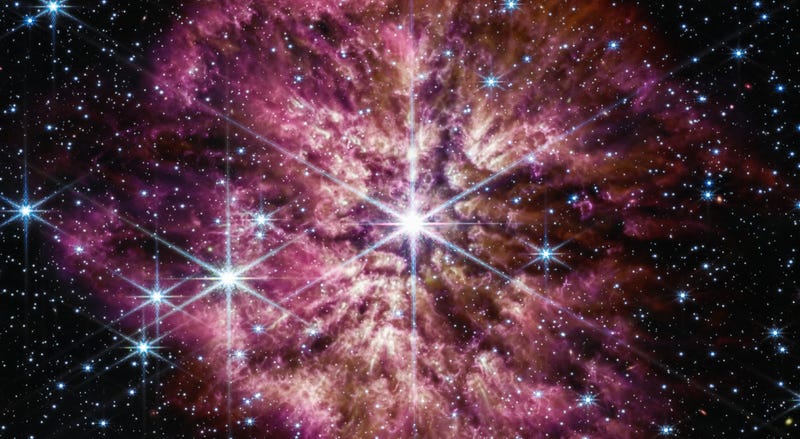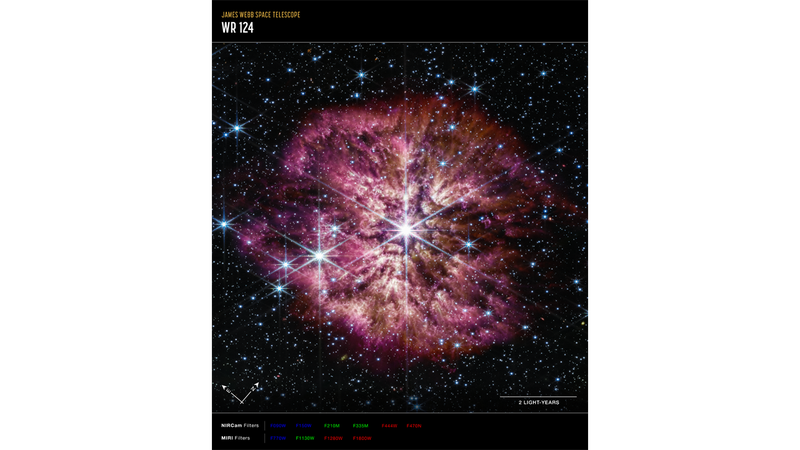
NASA released its latest image from the James Webb Space Telescope on Tuesday: a breathtaking glimpse at the final moments of a massive star before it goes supernova.
The image shows a rare glimpse of a Wolf-Rayet star, which NASA says is one of the most luminous and massive stars known to exist in our Universe.
WR 124 was among the telescope's first observation targets in June 2022. The newly released image shows the star in stunning detail, despite it being 15,000 light-years away from Earth. This is possible thanks to the infrared instruments aboard the telescope.
In a statement accompanying the image, NASA detailed why this rare observation is significant.
"Massive stars race through their lifecycles, and only some of them go through a brief Wolf-Rayet phase before going supernova, making Webb’s detailed observations of this rare phase valuable to astronomers," the statement read.
"Wolf-Rayet stars are in the process of casting off their outer layers, resulting in their characteristic halos of gas and dust. The star WR 124 is 30 times the mass of the Sun and has shed 10 Suns’ worth of material – so far."
The statement also mentions the importance of the Universe's overall "dust budget." Astronomers study where cosmic dust originates as it is integral to the formation of all celestial bodies including stars, molecules, and even Earth.

Currently, there's more dust in the Universe than our current theories of dust-formation can account for, meaning the Universe is operating under a "dust budget surplus." Astronomers hope data from the Webb telescope will lead to more insight on this question.
"Before Webb, dust-loving astronomers simply did not have enough detailed information to explore questions of dust production in environments like WR 124 . . . Now those questions can be investigated with real data," NASA officials said in a statement.
The new image may also offer astronomers new insight into the early years of our Universe. Stars nearing supernova were among the first bodies in the Universe to contain heavy elements, elements which are now seen across the Universe, including on our planet.
LISTEN on the Audacy App
Sign Up to receive our KRLD Insider Newsletter for more news


